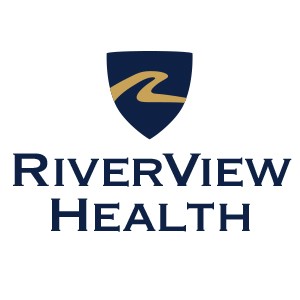The detection of colorectal cancer is increasing in people younger than age 50. In fact, according to a 2024 report from the American Cancer Society (ACS), colorectal cancer has moved up from being the fourth leading cause of cancer death in both men and women under age 50 two decades ago to first in men and second in women. (Breast cancer is the leading cause of death in women under 50.)
March is Colorectal Cancer Awareness Month and a great time to be screened. RiverView Health providers, general surgeon Dr. Brett Vibeto and gastroenterologist Dr. Max Miranda have years of experience providing life-saving screenings without patients having to wait months for an appointment. ACS statistics show that colorectal cancer rates for people under age 50 have increased by 1 to 2% each year since 1990. Therefore, in 2021, the recommended screening age was lowered to 45 from 50.
In 2023, approximately 153,000 individuals were diagnosed with colorectal cancer, and about 52,500 died from the disease, including 19,550 cases and 3,750 deaths in individuals younger than age 50.
Best Defense Against Colorectal Cancer? A Colonoscopy
While there are other screenings for colorectal cancer, like a stool sample, a colonoscopy is considered the best screening available. Using a lighted scope with a camera, the provider examines the colon and rectum to check for abnormal tissues and cells. During the procedure, if any growths or “polyps” are found, the provider can remove them at that time before they could potentially develop into cancer. Any polyps removed during the colonoscopy may be biopsied if needed.
Colonoscopies save lives, as early detection means a higher chance of survival. When caught early, colorectal cancer is 90% treatable. Statistics show that if everyone 45 and older were screened regularly, as many as half of the deaths from colorectal cancer could be avoided.
The risk of getting colorectal cancer increases with age as polyps become more common. Other factors that increase your risk include eating a diet low in fiber and high in fat and living a sedentary lifestyle.
Overall, the lifetime risk of developing colorectal cancer is about 1 in 23 for men and 1 in 25 for women. However, each person’s risk might be higher or lower than this, depending on their risk factors. Your primary care provider may advise you to be screened earlier if you have a family history of colorectal cancer or polyps or have a personal history of inflammatory bowel diseases, such as ulcerative colitis or Crohn’s Disease. Several inherited disorders significantly increase your risk of colorectal cancer.
Symptom-Free? Screen Anyway
Just because you do not have any symptoms, it does not mean you are in the clear for colorectal cancer. Precancerous polyps and colorectal cancer do not always cause symptoms, especially initially. You could have polyps or cancer and not know it. That is why screening is so important.
Some symptoms that may indicate colorectal cancer include- Rectal bleeding, blood in or on the stool (bowel movement), stomach pain, aches or cramps that do not go away, losing weight without a known reason, constant fatigue, change in bowel movements, and discomfort in or the urge to move your bowels when there is no need. If you have any of these symptoms, the only way to know what is causing them is to see your provider.
While there is no way to eliminate the risk of developing colorectal cancer entirely, there is evidence that you can reduce your chance of getting it by doing the following-
Have a diet that is rich in fiber; eat plenty of whole grains, fruits, and vegetables
Eat cabbage, broccoli, cauliflower, and Brussels sprouts often
Avoid foods that are high in fat, particularly saturated fat
Eat foods that are high in calcium
Exercise regularly
If you are 45 or older, talk to your primary care provider about screenings available at RiverView Health, or call 281.9595 for more information. Unless required by your insurance, you do not need a referral for a colonoscopy.






